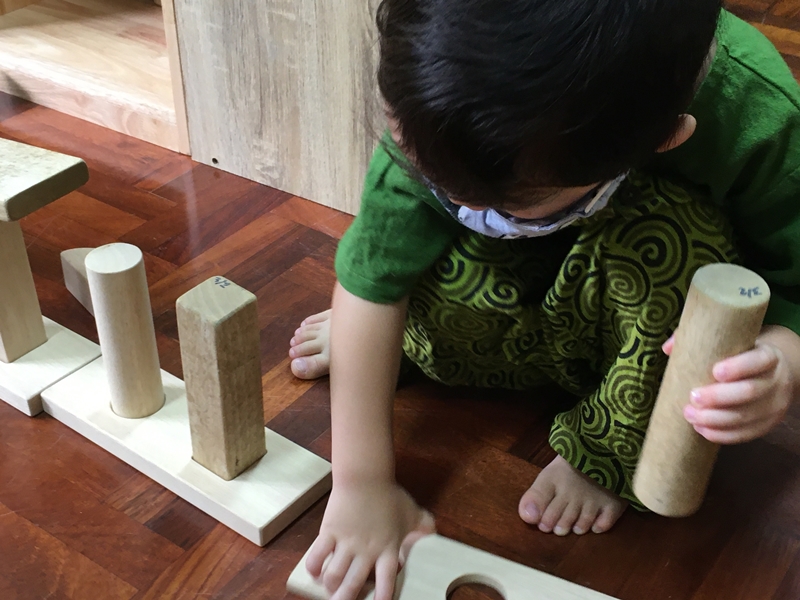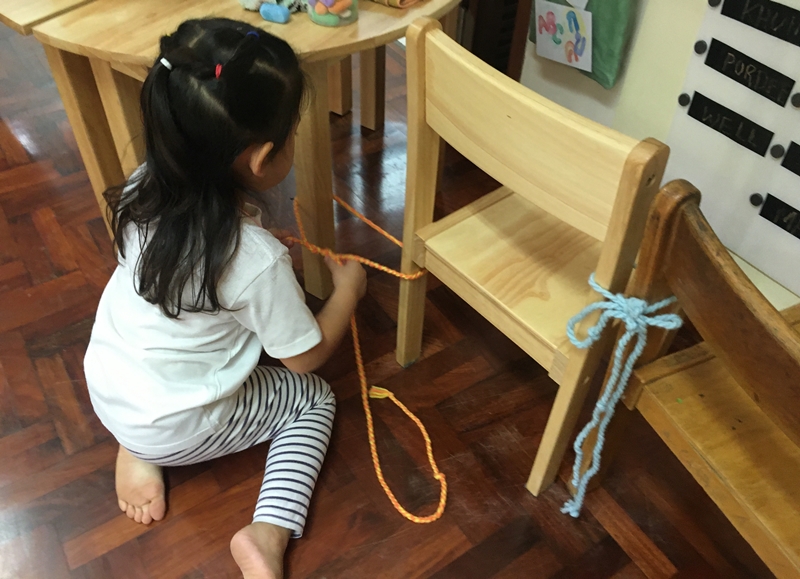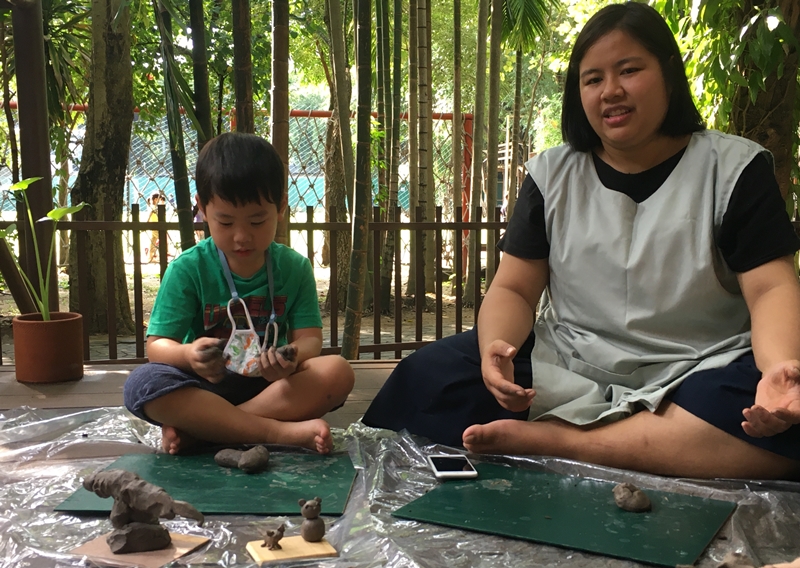
Learning by Living: The Importance of Free Play
Skills for Living Together: Learning to Face and Solve Problems
 Free play can be seen as a tool for learning self management while developing thinking skills too. Cru Air, the head of the Roong Aroon kindergarten, explains:
Free play can be seen as a tool for learning self management while developing thinking skills too. Cru Air, the head of the Roong Aroon kindergarten, explains:
So in free play, they get to design their own playing, and in doing that, they get to use their thinking skills. When they think they want to do something, their body has to work on it, and if they face a problem, they have to think of how to solve a problem. And when they can conquer that, they will think, ‘Okay, this is how I can do it.’ They know their ability. And they feel proud of themself.
When they play with friends they will get to learn how to share ideas, how to listen to others, so this is like the basic skill for living together.
So, we, the teachers don’t really join the play, but we closely observe how they talk to their friends, and what are their interests, so we grab that topic to talk with them later on. This way, they get to practice their verbal skills because they get to talk to us.
Within the playing, the students are learning. The nature of student learning is they play, they learn, which allows them to get knowledge by doing something that is meaningful to them. There is a gradual approach to introducing relevant content to students, which is essential, slowly suggesting content that makes sense in the child’s world. Cru Air expresses, “We try to link them with something not so far from themself, something related to themself…We try to think back about the content that is related to their daily life.” By learning to play with new toys that allow them to mimic or build things that they see or experience in their own lives, it helps them to think about and construct meaning about the world in which they live.
Allowing the students time for free play gives the students a sense of ownership. Teacher Fern explains that whether the child is playing alone or with friends, the “teacher’s job” is to observe, know when to fade away, and noticing if anyone needs help. These strategies help the KG students to develop the feeling that their learning belongs to themselves.
Students Develop a Sense of Ownership During Free Play
 Every day, in the KG River Room and outside too, free time is filled by the choices of children, from building block towers, to molding clay with Teacher Fern to looking at picture books (and pretending to read, mimicking what they’ve seen their teachers doing), or water-color painting with Teacher Andrea. From peg boards to the timeless games of House or dress-up, or making a pretend cafe or eating pretend pizza, allowing the students the freedom to make their own choices during this unstructured time gives it a relaxed feeling so that students can enjoy themselves within the many learning processes that they are each engaged in. The youngest students sometimes watch their peers for a long time before making a decision about what to do. Observing is an important part of the learning process too. They will make choices when they are ready. They learn lots by watching their older peers, and their older peers develop a sense of pride by helping the younger ones.
Every day, in the KG River Room and outside too, free time is filled by the choices of children, from building block towers, to molding clay with Teacher Fern to looking at picture books (and pretending to read, mimicking what they’ve seen their teachers doing), or water-color painting with Teacher Andrea. From peg boards to the timeless games of House or dress-up, or making a pretend cafe or eating pretend pizza, allowing the students the freedom to make their own choices during this unstructured time gives it a relaxed feeling so that students can enjoy themselves within the many learning processes that they are each engaged in. The youngest students sometimes watch their peers for a long time before making a decision about what to do. Observing is an important part of the learning process too. They will make choices when they are ready. They learn lots by watching their older peers, and their older peers develop a sense of pride by helping the younger ones.

